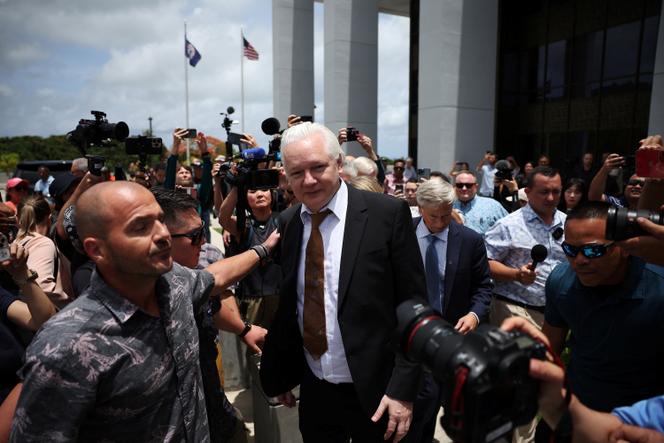


It's a surprise resolution to a case more than 12 years old. WikiLeaks founder Julian Assange, who has been in a London prison for the past five years, is now free after pleading guilty in a US court in Saipan (Northern Mariana Islands of the west Pacific) on Wednesday, June 26, to obtaining and disclosing classified government documents. He was sentenced to an already-served 62 months in prison and was able to walk out of the courtroom. At age 52, Assange is no longer the subject of legal proceedings, as the other matter he had been involved in, a rape case that had been opened in Sweden, was closed in 2019.
Supporters of Assange are overjoyed that he can return home to his native Australia. He was initially facing well beyond what he could have theoretically served (175 years imprisonment), and there is no question that the WikiLeaks dissemination in 2009 and 2010 – of tens of thousands of classified documents relating to US foreign affairs and the wars in Iraq and Afghanistan – had greatly irritated the authorities.
But overall, the guilty plea deal is a worrying sign for journalism. According to court documents revealed this week, Assange has been convicted under the Espionage Act, a harsh law whose potential use against the press constitutes one of the most controversial debates in the history of freedom of expression in the US. However, Assange's supporters have always argued that he was prosecuted for his journalistic work revealing information of high public interest.
Adopted in 1917 in the US, the Espionage Act criminalizes the act of fraudulently obtaining or disseminating classified documents relating to national security. Over the century of its existence, the act has been widely criticized for being too indiscriminate, leaving the authorities with a significant amount of discretion.
"A major problem with the law is that it fails to distinguish, on one hand, government insiders who share national security information with foreign powers in order to harm the United States, from, on the other hand, those who share information with the press in order to inform the American public about government misconduct and criminality," Jameel Jaffer, a lawyer specializing in free speech law among other things, pointed out in an essay for Politico in 2022. At the beginning of the 20th century, part of the act, since rendered inoperative, had been used to target political opponents – mainly Socialists – in the US.
In recent history, the Espionage Act has mainly been used to target whistleblowers who have acted as journalistic sources by leaking confidential documents and information to the press. In a rare case, the Chicago Tribune narrowly escaped indictment during the Second World War after an article revealed strategic information about battles against Japanese fleets. At the time of the "Pentagon Papers," the name given to the release by the New York Times and Washington Post of explosive documents on the war in Vietnam, the authorities only prosecuted the journalists' informants, Daniel Ellsberg and Frank Russo. The major Supreme Court decision, while endorsing the right of the press to publish such information, is still being debated today, with some arguing that it doesn't completely close the door on direct Espionage Act prosecutions against journalists.
You have 37.93% of this article left to read. The rest is for subscribers only.
